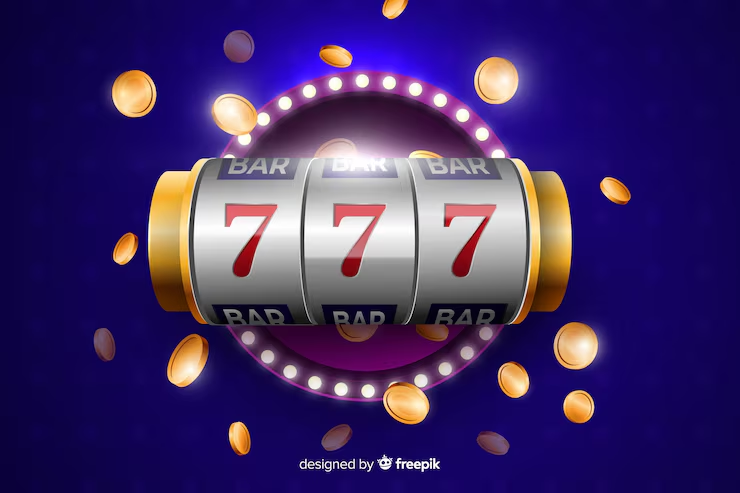
Online slots have become one of the most popular forms of digital entertainment, offering millions of players worldwide the thrill of spinning reels and chasing jackpots. สล็อตออนไลน์ But as these games continue to grow in popularity, one question often arises: how do players know the results are truly fair?
The answer lies in a core technology that ensures fairness, transparency, and unpredictability in every spin — Random Number Generator (RNG). This invisible yet crucial component is what makes online slots trustworthy and prevents any manipulation from casinos or players.
In this detailed guide, we’ll explore what RNG technology is, how it works in online slots, why it’s essential for fair play, and how reputable online casinos use it to maintain integrity and player confidence.
What Is RNG Technology in Online Slots?
At its core, RNG (Random Number Generator) is a sophisticated algorithm designed to produce completely random results. In online slots, RNG determines the outcome of every spin — which symbols appear, whether you win or lose, and how often jackpots are triggered.
Think of RNG as the digital equivalent of rolling dice or spinning a physical slot machine reel. Instead of gears and levers, it uses mathematical formulas and electronic signals to ensure each outcome is unique and unpredictable.
Types of RNG Used in Online Casinos
There are two main types of RNG systems in use today:
- True Random Number Generators (TRNGs):
These rely on unpredictable physical processes (like electronic noise) to generate randomness. TRNGs are often used in land-based casinos or cryptographically secure systems. - Pseudo-Random Number Generators (PRNGs):
Most online slots use PRNGs — algorithms that create long sequences of random numbers using an initial “seed” value. While mathematically generated, these sequences are effectively unpredictable to humans.
Both types are tested and verified by independent labs to ensure fairness before being implemented in licensed online casinos.
How RNG Works in Online Slots
To understand how online slots use RNG technology, it helps to visualize the process behind each spin.
Step 1: RNG Generates a Random Number
Every time a player clicks “spin,” the RNG produces a random number — often between 1 and several billion. This happens instantly and independently of any past or future spins.
Step 2: RNG Maps Numbers to Symbols
Each possible outcome on the slot’s reels (symbols, paylines, and combinations) is assigned a numerical range. The RNG maps the generated number to a specific reel position, determining which symbols appear.
Step 3: The Game Displays the Outcome
Once the RNG determines the positions, the slot displays them as a combination of symbols on the screen. The result could be a win, a bonus trigger, or no prize at all — purely determined by chance.
Step 4: Process Repeats Randomly
After every spin, the RNG starts again, producing a new random number sequence. There’s no pattern, memory, or influence from previous spins — ensuring every result is independent.
In essence, RNG ensures that online slots remain fair, unbiased, and impossible to predict.
Why RNG Is Essential for Fair Play
Without RNG, online slot games could easily be manipulated — either by the platform or by players trying to exploit patterns. RNG eliminates that possibility and maintains integrity across all online casino games.
Here’s why RNG is the cornerstone of fair play:
1. Unpredictability
Every spin is completely random. No one — not the casino, not the player, not even the developer — can predict or alter the outcome.
2. Equal Opportunity
Each player has the same chance of hitting a jackpot or bonus feature. RNG ensures fairness regardless of how much money is wagered or how long someone plays.
3. Transparency and Trust
Licensed online casinos undergo strict auditing to verify their RNG systems. Independent agencies test and certify that the outcomes are random and comply with gaming regulations.
4. Prevents Manipulation
RNG makes it impossible for players or external software to “crack” the system. Even with advanced technology, predicting future outcomes is mathematically impossible.
RNG and RTP: The Perfect Balance
While RNG ensures randomness, another key metric determines how much a slot pays back to players over time — the Return to Player (RTP) rate.
Understanding RTP
RTP is the theoretical percentage of all wagered money that a slot returns to players over many spins. For example, a slot with a 96% RTP will, on average, return $96 for every $100 wagered in the long run.
However, RNG ensures that short-term results vary wildly. You might win big or lose several spins in a row — both outcomes are part of the random distribution.
How RNG and RTP Work Together
- RNG determines the randomness of each spin.
- RTP defines the mathematical design of payout ratios over time.
Together, they guarantee that while every spin is random, the long-term payout percentage stays consistent with the game’s design.
Independent RNG Testing and Certification
To maintain credibility and comply with gambling regulations, reputable casinos submit their RNG systems to independent testing labs. These agencies audit, simulate, and analyze millions of spins to verify randomness.
Top RNG Testing Organizations:
- eCOGRA (eCommerce Online Gaming Regulation and Assurance):
A leading independent testing agency that certifies RNG fairness and RTP accuracy. - GLI (Gaming Laboratories International):
One of the most respected testing labs for both online and land-based gaming systems. - iTech Labs:
Specializes in testing online casino software, RNGs, and payout percentages. - TST (Technical Systems Testing):
Provides compliance testing for RNG algorithms and gaming platform fairness.
When players see certification logos from these organizations, they can rest assured the slot games are genuinely fair and verified.
Common Myths About RNG in Online Slots
Despite being a cornerstone of fair gaming, RNG technology is often misunderstood. Let’s debunk some of the most common myths:
Myth 1: Online Casinos Can “Tighten” the Slots Anytime
Fact: Licensed casinos cannot modify RNG outcomes in real-time. RNG and RTP are built into the slot’s software and regulated by gaming authorities. Changing these would require re-certification.
Myth 2: Slots Get “Hot” or “Cold”
Fact: Every spin is independent. A “hot streak” or “cold streak” is purely coincidental — RNG does not remember or adjust based on past results.
Myth 3: Playing at Certain Times Increases Winning Chances
Fact: RNG runs continuously, generating random sequences even when no one is playing. Time or session duration has no effect on outcomes.
Myth 4: Higher Bets Lead to More Wins
Fact: The size of your bet does not influence RNG outcomes. While higher bets may yield larger payouts, the chance of winning remains the same.
Myth 5: Bonus Features Are “Due”
Fact: Bonus rounds are triggered randomly, not on a schedule. Even after long gaps, there’s no guarantee the next spin will activate one.
Understanding these facts helps players enjoy online slots responsibly, knowing that fairness isn’t about timing or luck manipulation — it’s about RNG integrity.
RNG in Progressive Jackpot Slots
Progressive jackpot slots are a unique category where RNG plays an even more critical role. These games link jackpots across multiple casinos or games, allowing the prize pool to grow with every spin.
Here’s how RNG maintains fairness in progressive slots:
- Each spin contributes a small portion to the jackpot pool.
- RNG determines not only the reel symbols but also whether a jackpot is triggered.
- The timing of a jackpot win is completely random — it could happen after 10 spins or 10 million.
Because of RNG, no one can predict or force a jackpot. Every player has an equal shot, making massive wins both thrilling and fair.
The Role of RNG in Live Dealer and Hybrid Games
While RNG is traditionally used in digital slots, it’s also essential in live dealer games and hybrid online casinos that combine real-world and digital elements.
For instance:
- In live roulette, RNG may be used to simulate outcomes when a physical wheel isn’t present.
- In video poker or blackjack, RNG ensures fair card shuffling and dealing.
Even though players see real dealers or environments, the behind-the-scenes randomization is powered by RNG systems that ensure unbiased gameplay.
How Players Can Verify RNG Fairness
As a player, you can take proactive steps to ensure you’re playing on legitimate and fair platforms.
1. Check for Licensing
Only play at online casinos licensed by reputable authorities like:
- Malta Gaming Authority (MGA)
- UK Gambling Commission (UKGC)
- Curacao eGaming
- Gibraltar Regulatory Authority
These licenses require casinos to use certified RNG systems.
2. Look for Testing Seals
Legitimate platforms display certification logos from RNG testing labs like eCOGRA, iTech Labs, or GLI.
3. Review RTP and Game Information
Transparent casinos publish RTP rates for each slot, showing commitment to fairness.
4. Read Independent Reviews
Reputable gambling review sites often assess the fairness and reliability of a casino’s software and RNG certifications.
By following these steps, you ensure that you’re playing on platforms where RNG technology is genuinely fair and verified.
How RNG Protects Both Players and Casinos
RNG technology doesn’t just protect players — it also safeguards casinos from fraudulent activity. Since outcomes are entirely random and tamper-proof, it prevents:
- Collusion or cheating by players or third parties.
- Predictive algorithms designed to exploit patterns.
- Manual interference from operators or staff.
This dual protection maintains trust, stability, and long-term sustainability for the entire online gaming ecosystem.
The Future of RNG: Enhanced Fairness Through Blockchain and AI
As online gaming evolves, RNG technology continues to advance. Developers are now exploring blockchain-based RNGs and AI-driven fairness models to bring even more transparency.
1. Blockchain RNG
Blockchain technology allows RNG processes to be publicly verifiable. Players can independently confirm that outcomes are random and untampered — creating a new standard for provably fair gaming.
2. AI-Enhanced Fairness
Artificial Intelligence can monitor RNG systems for irregularities, detect manipulation attempts, and ensure compliance with global gaming standards.
3. Hybrid Randomization Models
Some modern slots combine traditional RNG with real-world variables (like atmospheric noise or quantum randomness) for even more unpredictable outcomes.
The future promises greater fairness, transparency, and security for players worldwide.
Conclusion
RNG technology is the beating heart of every fair online slot. It ensures that every spin is random, every player has an equal chance, and every outcome is free from manipulation.
Whether you’re playing a classic 3-reel slot or a high-definition progressive jackpot game, RNG works silently in the background — guaranteeing fairness, excitement, and unpredictability.
So next time you spin the reels, remember: it’s not luck or timing that determines the result — it’s the brilliance of mathematics and certified technology ensuring fair play always.






